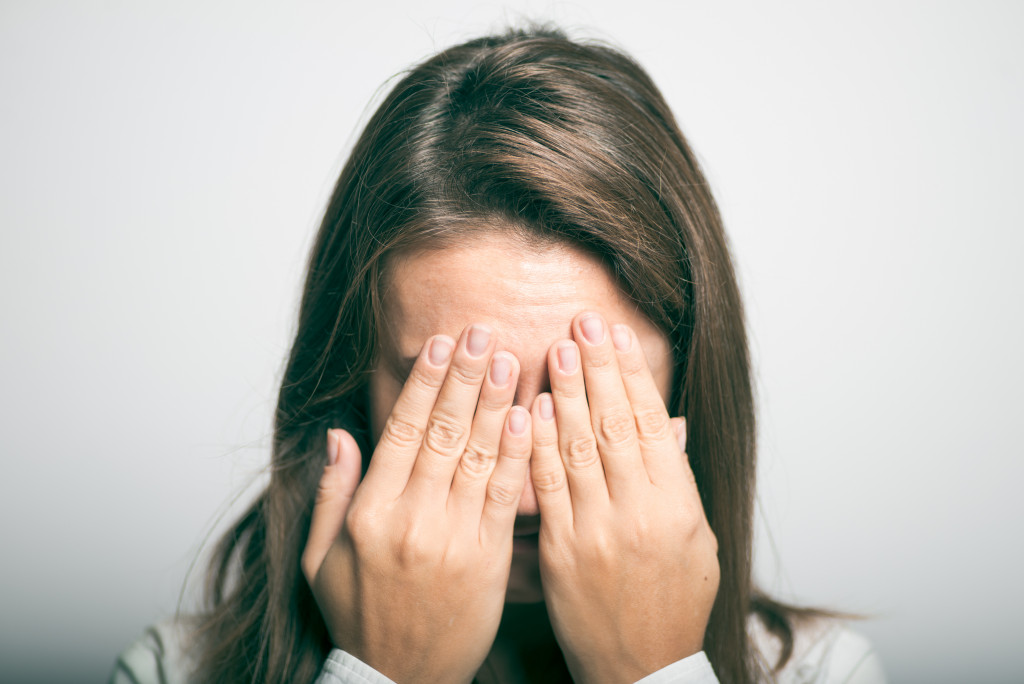Everyone knows that a person’s physical appearance has an impact on their mental health. Those who have acne, for example, tend to have issues with self-images and might not feel confident, especially young people who experience bullying because of skin concerns. However, not many discuss the impact of appearance on one’s mental health.
The mind and the body are not separate. If there is a problem with one, the other will respond accordingly. It is not uncommon, therefore, to see symptoms of mental health conditions appear physically. Depression, for example, can present itself through fatigue, muscle pain, headache, and decreasing vision. On the other hand, anxiety comes with shortness of breath, increased heart rate, stomach pain, nausea, lightheartedness, muscle tension, and trembling. Anxiety also influences your skin’s health. Not many might know this, but your skin tends to reflect your mood.
How Anxiety Triggers Inflammation
There are various ways in which mental health and skin condition are inherently intertwined. One way the skin negatively reacts to mental health issues is through inflammation.
Anxiety triggers the stress response known to cause flare-ups of different skin conditions, including acne, rosacea, eczema, and psoriasis. During moments of anxiety, the body releases chemicals and hormones, including cortisol, that lead to inflammation.
Cortisol, in particular, is problematic because experts have proved that this hormone disrupts the skin’s natural barrier and delays the healing process. The stress hormone is also notorious for dampening immune function, making the body unable to fight infections.
The Problem with Inflammation
Inflammation is not all bad. There are causes of inflammation that are helpful and can protect the body. In some cases, inflammation is good for the skin. Many skin treatments such as peels and retinoids ignite an inflammatory response to stimulate collagen production. That is why it is an effective process used in anti-aging. If inflammation happens in regulated short bursts, it is good for the skin.
Long-term, however, inflammation causes the opposite effect. A person who is often anxious and stressed gets stuck in a cycle of inflammation or chronic inflammation. When that happens, the skin is unable to replenish itself. There is not enough energy to turn healthy skin cells or produce collagen and elastin—processes that create glowing and youthful-looking skin. Instead, the skin suffers from premature aging.
The term “inflammaging” is a portmanteau for inflammation and aging. Previous research has shown that constant inflammation contributes to rapid and premature aging of the skin.
Skin Concerns Rooted in Anxiety

There are other skin concerns that are deeply connected with mental health. People who are experiencing extreme distress might express their emotions physically. Many bite their nails or jiggle their legs. Some, however, pick at their skin.
Chronic skin picking or excoriation disorder refers to a condition in which a person repeatedly picks at minor skin irregularities such as pimples, calluses, dry patches, and scabs until it results in lesions. Because it happens repeatedly, it prevents the skin from ever healing.
Anxiety also sometimes leads to itchy skin. There are several reasons why you inexplicably feel itchy when you are anxious, but one is the connection between mind and skin. Anxiety is a neural condition. The nerves become hyper-sensitive to itch signals.
People experiencing anxiety might also feel itchy because of seborrheic dermatitis, a rash on the skin that produces flaking and red patches.
Addressing Anxiety to Fix Skin Concerns
There are products to control these physical symptoms associated with anxiety. You can use topical skincare products to counter inflammaging and regain a youthful glow. For acne, tons of treatments promise to calm inflammation and dry pimples. You can get relief from itchy skin by using moisturizers and using over-the-counter anti-itch creams.
However, all these symptoms will only reappear as soon as you become anxious again. The best way to address the physical impact of anxiety on your skin is by going to anxiety’s root cause, which is anxiety.
Find ways to better manage anxiety. Wellness experts claim that meditation relaxes the body and the mind, for example. Exercise is also recommended to anxious people because it expends excess energy.
More importantly, if you experience anxiety frequently and have started to negatively affect your life, see a therapist. A therapist will be able to suggest a treatment plan to manage anxiety.
Anxiety is a condition that affects the mind, but it also has an impact on the body. It creates physical symptoms that influence body organs, including the skin. The best way to address these physical symptoms is by first gaining better control over anxiety.
